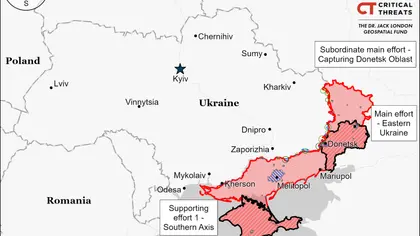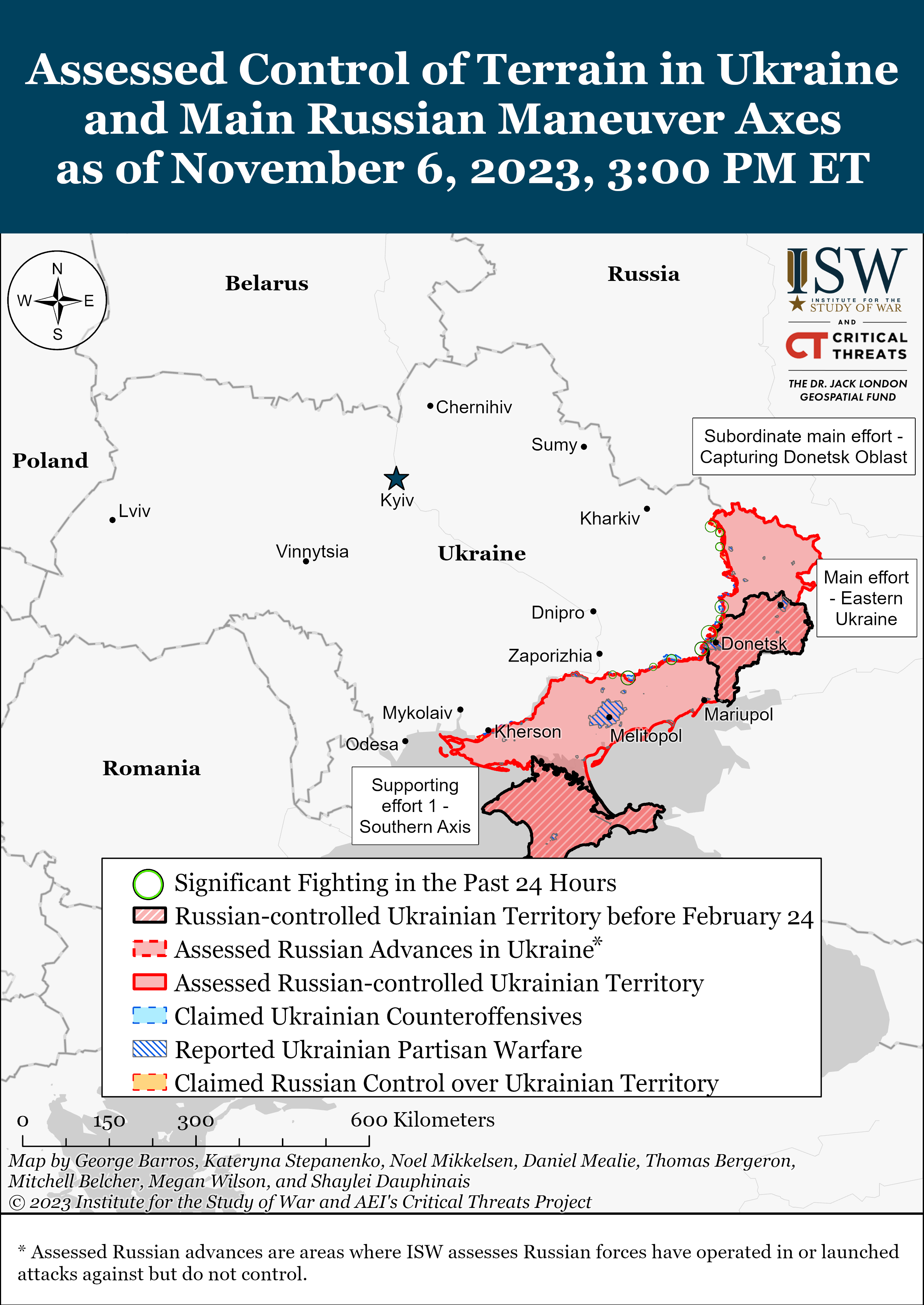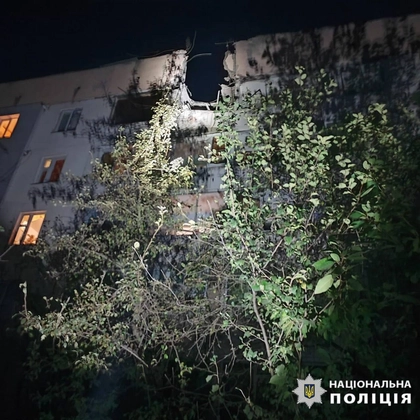Key Takeaways from the ISW:
- Imprisoned ardent nationalist and former Russian officer Igor Girkin argued that Russian forces will be “even less capable of offensive operations than they are now” by spring 2024 given the current nature of Russian offensive operations along the frontline.
- Russian milbloggers appear to be grappling with how Russian forces can overcome wider operational challenges in Ukraine, likely in response to Ukrainian Commander-in-Chief General Valerii Zaluzhnyi’s recent essay on the subject of “positional warfare,” and not coming to optimistic conclusions.
- Select Russian milbloggers specifically argued that the use of small infantry assaults groups will allow both Russian and Ukrainian forces to better achieve operational objectives along the front. Russian sources suggested that some Ukrainian forces may already be fielding the small infantry assault groups that these sources are advocating for.
- The war in Ukraine is likely exacerbating an emerging identity crisis within Russian society resulting from tensions between Russian identity and Russian nationalism.
- Russian forces conducted missile and drones strikes against rear areas in southern Ukraine on the evening of November 5 and on the night of November 5 to 6 as well as the largest series of glide bomb strikes to date against targets in Kherson Oblast on November 5.
- The Russian military appears to have increased its stock of high-precision missiles due to reported increases in Russian missile production more rapidly than previous forecasts had suggested.
- Ukrainian forces conducted counteroffensive operations near Bakhmut and in western Zaporizhia Oblast.
- Russian forces conducted offensive operations along the Kupyansk-Svatove-Kreminna line, near Bakhmut, near Avdiivka, west and southwest of Donetsk City, in the Donetsk-Zaporizhia Oblast border area, in eastern Zaporizhia Oblast, and in western Zaporizhia Oblast and advanced in some areas on November 6.
- Russian occupation officials are expanding military recruitment and registration offices in occupied territories, likely in support of coercive mobilization efforts.
- Russian officials continue to weaponize youth engagement programs to consolidate social control of occupied areas of Ukraine.
Authors: Kateryna Stepanenko, Grace Mappes, Angelica Evans, Christina Harward, and Frederick W. Kagan.
See the original here.
JOIN US ON TELEGRAM
Follow our coverage of the war on the @Kyivpost_official.
To suggest a correction or clarification, write to us here
You can also highlight the text and press Ctrl + Enter
You can also highlight the text and press Ctrl + Enter








